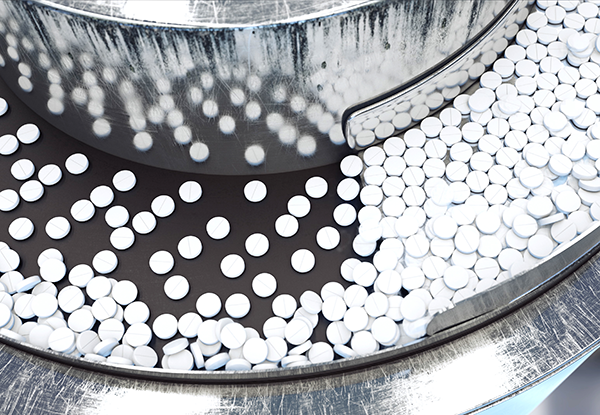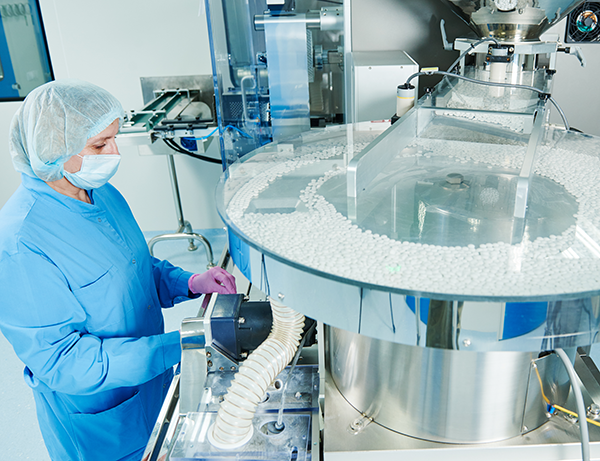
Bright Path Laboratories Develops New Way to Produce Active Pharmaceutical Ingredients

Bright Path Laboratories says it has found a better way to produce active pharmaceutical ingredients – those chemical components that make medicines work the way they’re supposed to.
The 3-year-old startup contract manufacturer – with offices in both Charlotte and Santa Fe, N.M. – recently got a strong show of support from The U.S. Food and Drug Administration for its patented spinning-tube-in-tube (STT) continuous-flow reactor.
The agency accepted the system, the only one of its kind that manufactures active pharmaceutical ingredients (APIs), into the FDA’s Emerging Technology Program. That program promotes innovative approaches to pharmaceutical product design and manufacturing.
“We are thrilled that our technology was so well received by the Emerging Technology team, as well as their willingness to support our efforts to bring this innovative and exciting technology online as quickly as possible,” said Charles Gray Jr., Ph.D., BPL’s head of regulatory affairs.
The company plans to establish several micro-manufacturing sites in North Carolina soon to help commercialize the STT flow reactor process. It says it will also locate an API development lab in Santa Fe.
Efficient, less expensive, and environmentally sound to boot
The STT continuous-flow system can produce APIs much faster and at a lower cost than traditional pharmaceutical batch processing, according to BPL. The company says STT also is more flexible and environmentally friendly. The company hopes the technology will help bring back to the United States some of the API manufacturing that has moved to lower-cost countries.
An estimated 80% of APIs used domestically are now made outside the U.S., primarily in China and India. The current coronavirus pandemic has heightened supply, security, and health concerns over the U.S. dependence on foreign sourcing.

“The coronavirus outbreak has highlighted the vulnerability of our country’s supply chain,” said John Allen, BPL’s chief commercial officer. He believes
SST works by mixing components continuously into a tube that is spinning at 5,000 revolutions a minute. This causes a series of rapid “telescoping” chemical reactions that produce APIs. The process can be routinely monitored, and quality problems are corrected in real time. That improves quality and reduces waste, which saves money and lowers the impact on the environment.
The SST technology also uses equipment that is only about one-tenth the size of batch manufacturing systems. That means the SST approach requires smaller amounts of solvents and less energy – two more environmental pluses. Production can be ramped up or scaled down by varying reactor run times to meet demand.
Batch processing – the way most APIs are currently produced – is a half-century-old technology that is far more cumbersome. It manufactures product through a series of lengthy steps, using large vats that are cleaned after every chemical process.
When quality control problems arise, the entire contents of a 6,000-gallon vat are often discarded. That can be a significant burden to the bottom line. Some estimates place pharmaceutical manufacturing waste at a staggering $50 billion a year in lost revenue.
“The progressive advancements of Bright Path Laboratories’ technology carry the potential to transform pharmaceutical manufacturing across North Carolina and beyond,” said Corie Curtis, executive director of the North Carolina Biotechnology Center’s Greater Charlotte Office. “We are proud to have BPL company representatives actively working in this region to accelerate timelines for this next-generation U.S.-based API manufacturing breakthrough.”
Gearing up to both use and license the technology
The STT continuous-flow reactor technology isn’t the answer to every pharmaceutical manufacturing challenge. But it could offer tremendous promise in the production of active pharmaceutical ingredients. BPL is gearing up to make an impact, both as an API contract manufacturer and as a licensor of its technology through joint ventures with other pharmaceutical and biopharmaceutical businesses and contract manufacturing organizations.
“As a younger company, we are not burdened with older facilities or equipment,” said BPL CEO Tony Quinones. “This means we are better positioned than traditional batch technology to help put cutting-edge small-molecule therapies into the hands of patients more rapidly and cost effectively.”
BPL was founded in 2017 with the goal of becoming a leader in manufacturing active pharmaceutical ingredients. Its mission is to use technology to help solve real-world problems, including the affordability of medicines and access to treatments for rare diseases.
